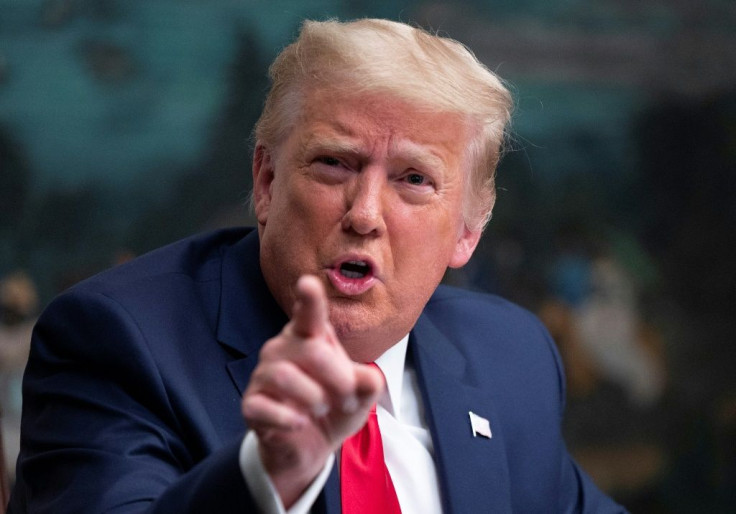Should Trump Pardon Himself? 68% Of Americans Say 'No'
KEY POINTS
- 68% of Americans say Trump should not pardon himself
- 58% of Americans support Twitter's ban of the president
- Trump may face criminal liabilities for inciting a riot and solicitation to commit election fraud
A majority of Americans believe President Donald Trump should not pardon himself for any criminal liabilities he may face after President-elect Joe Biden takes office on Wednesday.
At least 68% of Americans oppose Trump using his executive clemency powers to pardon himself to evade possible legal jeopardies at the end of his term as president, according to an ABC News/Washington Post poll released Friday.
The survey also showed that 58% of Americans are in favor of Twitter’s recent ban on Trump’s account after he posted several ominous messages amid the attack at the U.S. Capitol on Jan. 6.
Two-thirds or 71% of the poll’s respondents also said president Trump bears some responsibility for the siege at the Capitol that left four civilians and one police officer dead. Among Republicans, 42% blame Trump for the violence. The number rises sharply to 93% among Democrats and 72% among independents.
The survey, which was produced by Langer Research Associates, found that Trump’s approval rating among Democratic voters has fallen to 4%, while his rating among independents or swing voters dropped to 35%.
The poll also showed that 56% of Americans are in favor of Congress barring Trump from holding office again, while 42% said lawmakers should not convict the president despite accusations that he incited the deadly riot at the Capitol.
Trump has previously discussed the possibility of pardoning himself, a source familiar with the conversations told Reuters. However, many are questioning whether his executive clemency powers could apply to him. The U.S. Constitution does not explicitly say whether a president can grant a pardon for himself.
Frank Bowman, a law professor at the University of Missouri, said that the words “grant” and “pardon” in the Constitution imply that a president’s executive clemency powers would only apply to anyone other than himself.
In 1974, the Justice Department issued a memo that barred then-President Richard Nixon from pardoning himself amid the Watergate scandal. However, the memo also suggested that Nixon could have been pardoned after stepping down by his vice president, Gerald Ford.
Some legal experts believe Trump could face criminal liability after his exit from office, which may include “criminal solicitation to commit election fraud” after he pressured Georgia’s top election official to “find” votes to overturn the results.
Trump could also be charged for encouraging thousands of his supporters to march to the Capitol and protest the certification of Biden’s victory.

© Copyright IBTimes 2025. All rights reserved.




















